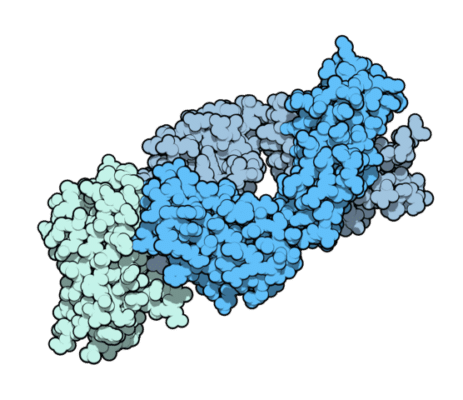Yervoy (Ipilimumab) for Mesothelioma Treatment

Yervoy® (ipilimumab) is an immunotherapy drug that has had a significant impact on the treatment of various cancers, including mesothelioma. In 2020, the FDA approved Yervoy in combination with Opdivo® for the treatment of mesothelioma. Researchers continue to explore its potential in combination with other treatments for this challenging cancer.
Yervoy Immunotherapy
Yervoy, with the generic name ipilimumab, is an immunotherapy drug manufactured by Bristol-Myers Squibb. It falls into the category of immune checkpoint inhibitors, which are monoclonal antibodies designed to help the immune system recognize and target cancer cells more effectively.
The immune system often struggles to identify cancer cells because they can closely resemble healthy cells. Checkpoint inhibitors like Yervoy play a crucial role in enhancing the immune system’s ability to detect and attack cancer cells. Yervoy was initially approved for melanoma treatment in 2011, setting the stage for its exploration in treating mesothelioma.
Key Facts About Yervoy (Ipilimumab)
- Generic name: Ipilimumab
- Brand name: Yervoy
- Administration: Intravenous (IV)
- Commonly used in combination with: Opdivo®
- Effective for various mesothelioma types: Biphasic, epithelioid, peritoneal, pleural, and sarcomatoid mesothelioma
- Manufacturer: Bristol-Myers Squibb Company
- FDA approval: The combination of Yervoy and Opdivo is FDA-approved for unresectable pleural mesothelioma.
Yervoy’s Role in Mesothelioma Treatment
Yervoy is an immunotherapy drug that empowers the immune system to target and combat mesothelioma cancer cells effectively. It does so by inhibiting a protein that normally prevents immune cells, particularly T cells, from recognizing and attacking cancer cells. By blocking this protein, Yervoy enhances the immune response against mesothelioma.
Clinical trials have played a vital role in evaluating the effectiveness of Yervoy in mesothelioma treatment, especially when used in combination with other therapies. The results of these trials have led to FDA approvals and advancements in mesothelioma treatment options.
Yervoy and Opdivo for Pleural Mesothelioma
Opdivo, also known as nivolumab, is another immunotherapy drug that operates as an immune checkpoint inhibitor. In a significant development, the FDA approved the use of Yervoy and Opdivo as a first-line therapy for unresectable pleural mesothelioma in 2020. This marked a crucial milestone in mesothelioma treatment, as it was the first FDA approval for this cancer type in 16 years.
Beyond extending survival, Opdivo and Yervoy also enhanced the quality of life for mesothelioma patients, with reported improvements in symptoms. As a result, this combination therapy is considered the preferred systemic treatment for inoperable pleural mesothelioma.
Yervoy and Opdivo for Asbestos-Related Lung Cancer
Exposure to asbestos can lead to various lung cancers, including small cell lung cancer and non-small cell lung cancer (NSCLC). Opdivo and Yervoy have been approved by the FDA as a first-line treatment for metastatic NSCLC based on positive results from clinical trials.
In the CheckMate 227 trial, patients with NSCLC were treated with Opdivo and Yervoy or chemotherapy. The combination of Opdivo and Yervoy demonstrated improved survival rates compared to chemotherapy, making it a significant advancement in lung cancer treatment.
Navigating Yervoy Treatment
Patients undergoing Yervoy treatment typically receive it in a clinical setting, often in combination with Opdivo. The treatment sessions are relatively short, lasting between 30 to 60 minutes, and the number of sessions varies depending on the individualized treatment plan.
For pleural mesothelioma, the recommended dosage includes:
- 360 mg of Opdivo every three weeks
- 1 mg/kg of Yervoy every six weeks
Patients usually receive Opdivo first, followed by a Yervoy dose on the same day. In some cases, immunotherapy may be followed by a round of chemotherapy. The treatment plan may extend for up to two years, with adjustments made based on the patient’s response and tolerance.
Preparing for Yervoy Treatment
Patients can prepare for Yervoy treatment by focusing on their overall health. This includes maintaining a balanced diet, staying hydrated, engaging in light exercise, and managing stress levels. Open communication with the medical team about one’s medical history is essential for a successful treatment experience.
Managing Treatment and Follow-Up Care
After receiving immunotherapy treatment, patients can expect regular follow-up care. The frequency and nature of these follow-up appointments will be determined by the medical team. These appointments typically involve laboratory tests and monitoring of specific health aspects.
Benefits of Yervoy
Yervoy and Opdivo have shown significant benefits in mesothelioma treatment, including:
- Enhanced quality of life
- Improved life expectancy
- Symptom relief
These benefits have been observed in clinical trials, reinforcing the potential of Yervoy in improving the outcomes of mesothelioma patients.
Yervoy (Ipilimumab) Side Effects
Like any treatment, Yervoy can cause side effects, which can vary from mild to severe. It’s important for patients to communicate any side effects with their healthcare team, as there are strategies to manage them effectively.
Determining Eligibility for Yervoy (Ipilimumab)
Patients interested in Yervoy for mesothelioma and other cancer types should engage in comprehensive discussions with a licensed physician. Off-label use of Yervoy is also an option, expanding treatment possibilities for patients with limited approved therapies.
In conclusion, Yervoy (ipilimumab) has emerged as a valuable addition to the arsenal of treatments for mesothelioma and other cancers. Its ability to enhance the immune system’s response to cancer cells has led to improved outcomes for many patients, offering hope and extended life expectancy. As research continues, the potential of Yervoy in treating various cancers, including mesothelioma, continues to evolve, providing new avenues for treatment and improved quality of life for patients.
